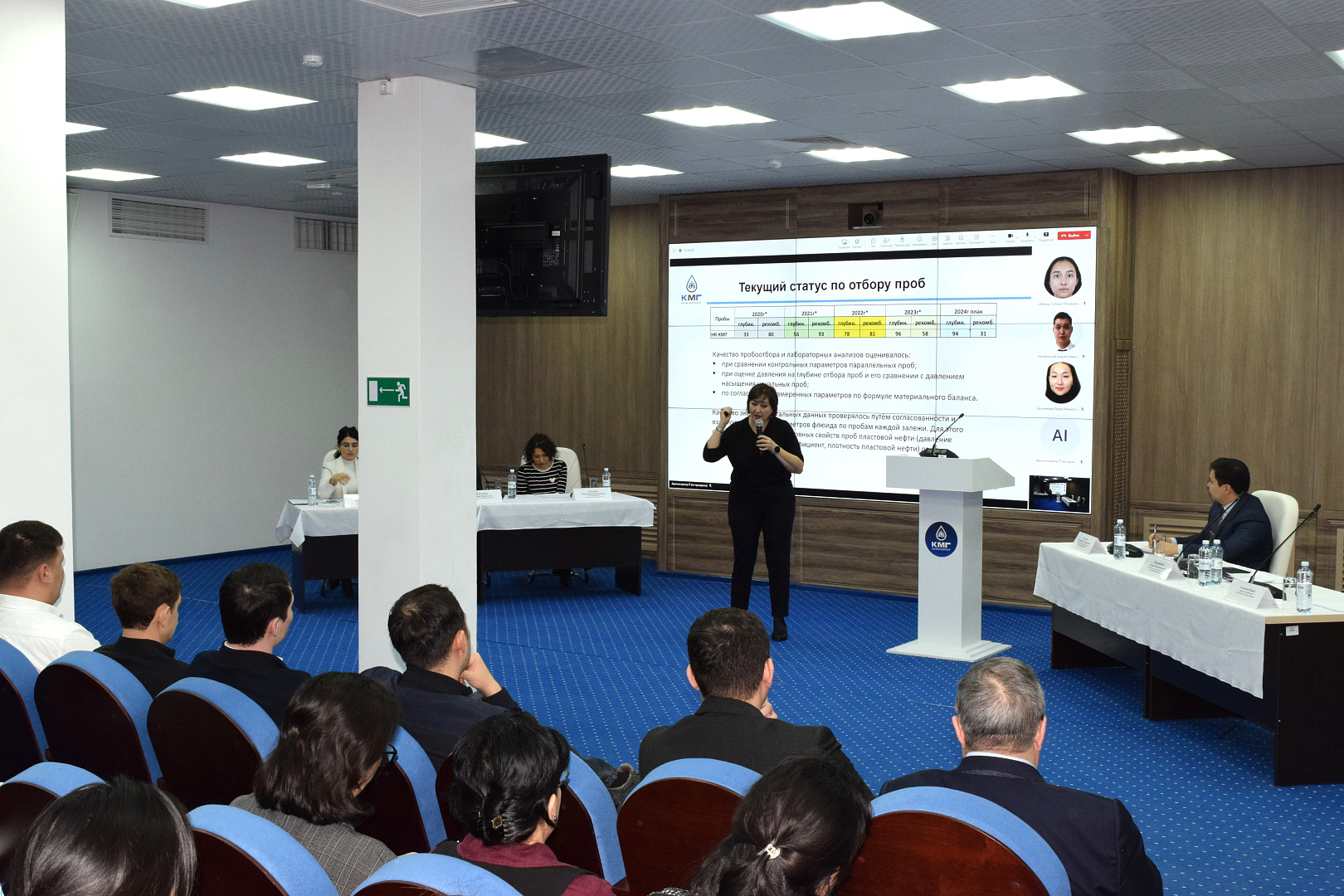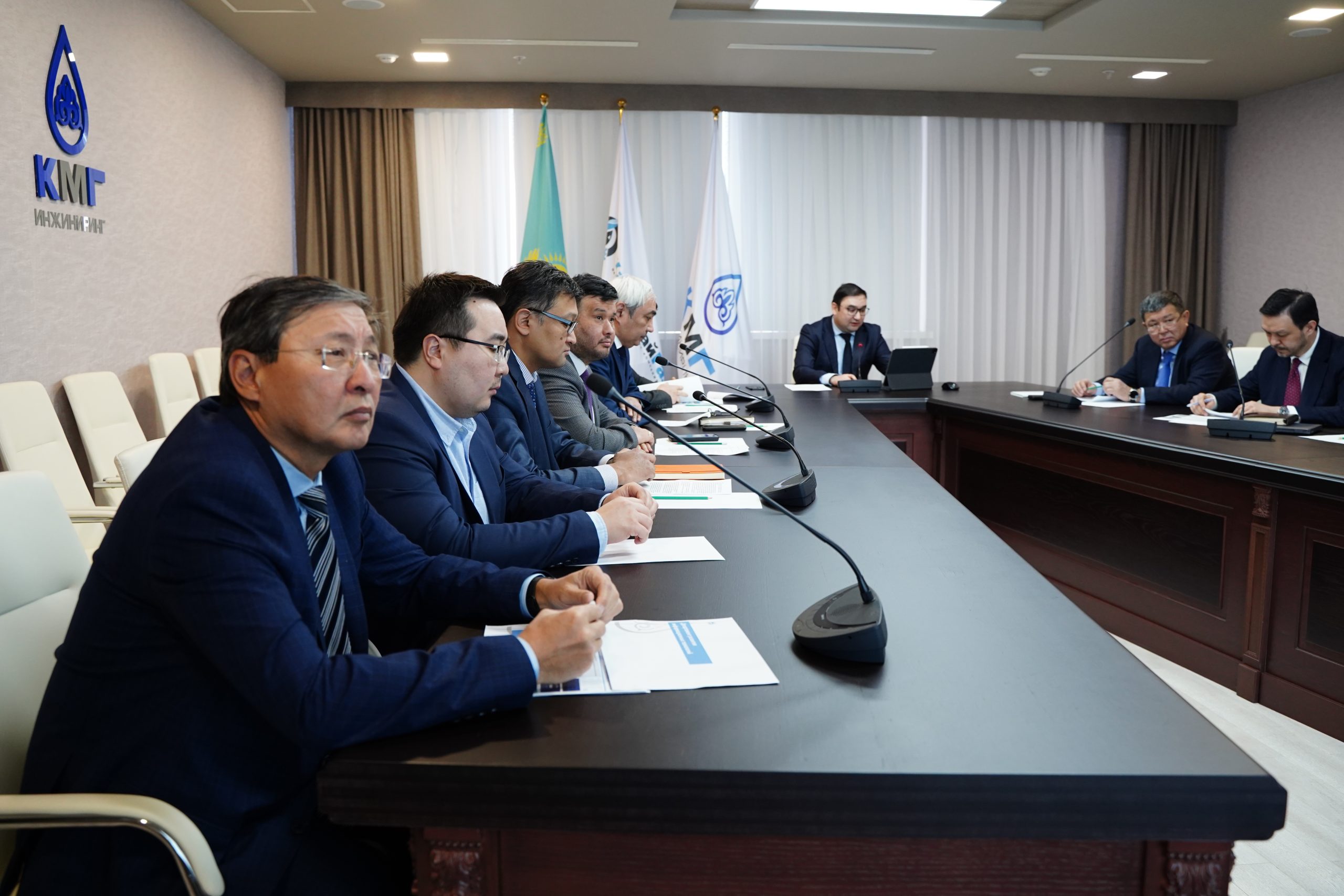KMGE organized a workshop on fluid sampling for KMG Group of companies
- 27.02.2024
- News-En, News-Eng
- Comments Off on KMGE organized a workshop on fluid sampling for KMG Group of companies
- D.Arkharova
Representatives of subsurface users and service companies, laboratory centers took part in a practical two-day training held recently at KMG Engineering Branches in Atyrau and Aktau. The event was initiated by KMGE PVT Competence Center.
The speakers and main participants of the seminar were: Head of the PVT CC – K.M. Kunzharikova, employees of the Competence Center – N.K. Dukessova, Leading Engineer of the PVT Modeling Department, Aldiyar Zheksembin – Engineer of the PVT Modeling Department, Gaukhar Bektas – Leading Engineer of the Geology and Exploration Service of Atyrau branch, Yerzhan Tussekenov – Head of the Laboratory for Study of Formation Fluids, Alexander Eleferenko – Head of the Laboratory for Study of Oil and Petroleum Products of the KazNIPImunaigas branch.
– During the training, we offered our colleagues current solutions for the gradual implementation of a systematic approach to managing the quality of fluid samples. To date, the PVT CC has developed and implemented regulatory and methodological documents in the field of organizing work on sampling planning and the sampling procedure itself. As long-term practice shows, the insufficiency and inaccuracy of information about the properties of formation fluids are one of the main causes of uncertainty in estimating reserves and forecasting oil production, and directly affect the economic assessment of projects, up to the decision to drill an additional exploration well, increasing the implementation time or complete closure of the project due to loss of profitability. Given the remoteness of wells from infrastructure facilities, the seasonality of the work being carried out, the introduction of new complexes of laboratory research and the observed complication of mining and geological conditions associated with the expansion of the perimeter of geological prospecting work, high-quality sampling of formation fluids is becoming an increasingly important and difficult task to solve which requires a revision of approaches to technologies, management of production and business processes, standards and quality criteria at all levels of decision-making. Under modern conditions, when the quality of the received geological information directly affects the profitability of projects, subsoil users have a goal to achieve 100% sample quality, – said Klara Kunzharikova, Head of the PVT CC.
The expert notes that the obvious insufficiency of the stated criteria, the lack of objective approaches and uniform requirements for sampling currently creates conditions for the use of unreasonable criteria and approaches by both service organizations and subsoil users and, as a result, the final verdict on the quality of the sample collected is given by the laboratory based on the research results. This means that in the case of taking a poor-quality set of samples or loss of sample quality (for example, in the case of depressurization of the sampler during transportation), the test unit may be closed with undetected subsurface uncertainties and the
impossibility (in case of seasonality of work, remoteness of the well) of
repeated sampling. Resources – financial, labor and time – will be wasted and the most important thing is that no one is responsible for such an outcome, as in conditions when the selection and transportation is a “black box”, it is impossible to say exactly at what stage and for what reasons the quality of samples was lost.
During the workshop, an urgent need to develop a unified objective system for monitoring and evaluating the quality of samples was discussed, which would minimize uncertainties about the quality of samples at the earliest stages. The training participants shared their own vision of the complex of factors determining the quality of a downhole in-place oil sample in terms of the concepts of accuracy and representativeness.
A systematic approach to managing the quality of downhole samples, according to the CC staff, is to ensure and control the conditions for the sample accuracy and representativeness from the moment of collection to its transfer to the laboratory unit. The ultimate goal of developing a systematic approach should be a gradual transition from indirect methods of quality assessment to direct ones; a change in attitude towards sample quality: sample quality not as a characteristic of a physical object, but as a characteristic of the totality and results of processes and, finally, the rejection of the stereotype “sample quality is determined by the laboratory”, the gradual transition of decision-making on sample quality from laboratory assessment to the field one, which , in turn, should be replaced by quality assessment directly in the well.
The event organizers express gratitude to subsoil users and service companies for their active participation in the training, as well as gratitude to the management of two branches of the company represented by B.A. Imanbayev and A.S. Mardanova for their invaluable help and support in organizing the workshop.










